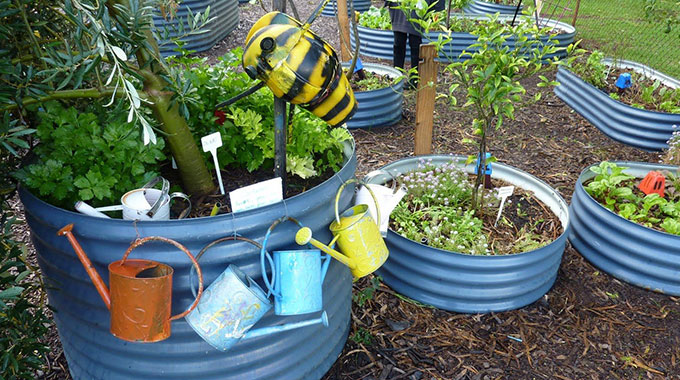
Mthabisi Tshuma, Business Correspondent
CHARITY organisation, Oxfam International Zimbabwe, has intensified its “climate change adaptation for rural livelihoods programme”, aimed at helping communities improve food production.
The programme is being funded by the Swedish International Development Agency and implemented in districts such as Bulilima in Matabeleland South, Buhera and Gutu where community irrigation gardens are being set up. Beneficiaries are also being assisted in terms of market linkages and tapping into the beef value chain, water resource development and training as well as use of alternative energy like solar. Bulilima
District, for instance, falls under the dry agriculture-ecological regions, which is characterised by high temperatures and low rains.
Such districts face perennial droughts and flash floods with attendant food shortages. Oxfam communications officer, Mr Ian Tavonga, said they were rolling out garden projects in targeted places like Ndolwane in Bulilima.
“The high temperatures combined with low and erratic rainfall results in high vulnerability to climate shocks such as droughts and flash floods. The district has been experiencing recurrent food shortages. Traditionally food insecurity is characterised by low agricultural productivity due to low annual rainfall received and that is when irrigation farming comes in,” he said.
“The district is constrained by poverty, declining remittances, low productivity, inadequate employment opportunities, high food prices and recurrent weather shocks.
Major livelihoods for the district are livestock rearing, crop production (small grains), remittances and cross border trading. He said their garden projects were meant to improve income security for rural women and youths through the sale of horticulture produce.
“The garden installed in Ndolwane CRV is 0.75ha in size and is irrigated by a solar water system with a total yield capacity of 7200 liters per hour. This is enough to support a garden, an orchard, dip tank, livestock drinking troughs and community,” said Mr Tavonga.
“A total of 80 households are directly benefitting in the garden. Farmers have a cropping calendar that includes crops like tomatoes, rape, cabbages, onions, carrots, cucumbers and butternuts.”
He said in Bulilima alone, 36 farmers including eight women have so far benefitted from organised market linkages in beef value chain through cattle sales that have been done in March and April. The project has facilitated market linkages to prominent beef value chain off-takers in Bulawayo.
“The thrust is to instill a sense of farming as a business through livestock and build resilience in the beef supply chain. Benefits of the project would be derived from increased productivity and production at the farm level through adoption of a package of innovative climate-adapted production practices,” Mr Tavonga said.
Business Chronicle recently visited the Ndolwane solar irrigated market garden where Bulilima West legislator, Dingumuzi Phuthi, made a familiarisation tour. One of the project members, Mrs Sicatshisiwe Nyathi, said the 864-bed garden has 79 members of which 56 are female and 23 males with 12 being youths.
“We started clearing the land in February where we were working twice a week and we stopped due to Covid-19 until we resumed operations in June,” she said.
“Through dedication and hard work, we have managed to finally prepare the land for farming and with funds from the garden coffers we are going to buy seed for planting, which is set to start by next week.
“Water from the solar powered borehole has become a panacea to livestock production as we have set up a tank where the animals can drink. The animals are adapting and we are seeing a difference despite drought.”
Cde Phuthi pledged to assist in harnessing more funds for the project as well as sourcing cement for the construction of a toilet within the garden premises.-@mthabisi_mthire.
